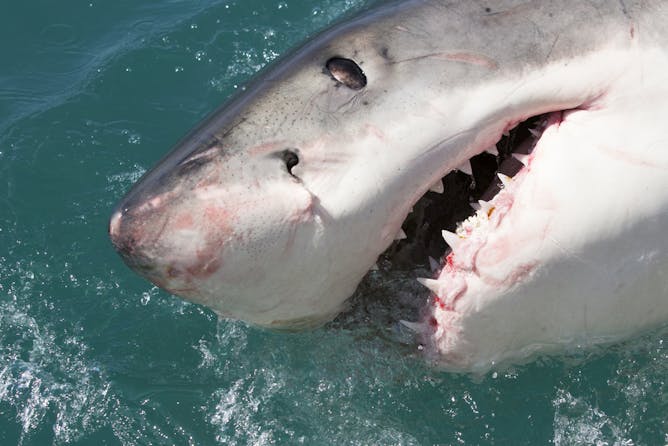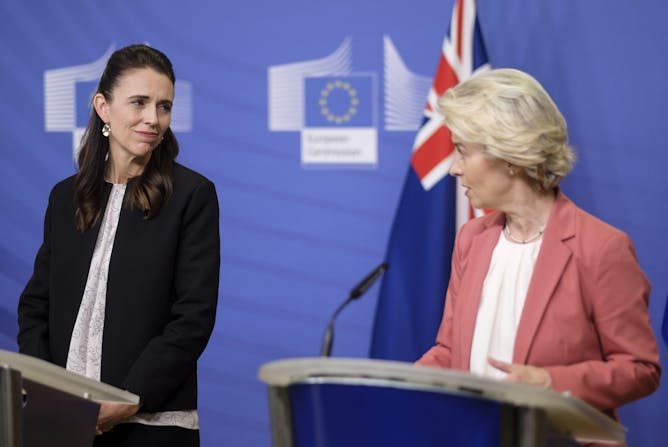|
Biologist Alison Towner has been tracking great white sharks off the coast of South Africa for 15 years. Until 2017, numbers in the region she was studying were pretty consistent. Then, suddenly, sightings became much less frequent. And something else had been spotted in the area: a pair of killer whales.
Killer whales are known to target great whites, but the proximity to shore where this is happening in South Africa has given Towner and colleagues a unique, if grizzly, opportunity. They have been able to study the carcasses of the sharks that were attacked by the whales. In this fascinating episode of our African edition’s podcast , Towner tells the story of a fascinating research project.
Britain’s Conservative Party, meanwhile, is trying to move on from Boris Johnson to select its next leader and the country’s prime minister. Simon Torney at the University of Bristol, though, explains why Johnson is having to depart Downing St.
|

shutterstock.
Ozayr Patel, The Conversation
A pair of killer whales are hunting and preying on South Africa's great white sharks, forcing the sharks to flee.
|

Alamy/PA
Simon Tormey, University of Bristol
The scandals attract all the attention but the real problems in Johnson’s administration ran much deeper.
|

NZ PM Jacinda Ardern and EU Commission President Ursula von der Leyen after their meeting on June 30.
Getty Images
Serena Kelly, University of Canterbury; Mathew Doidge, University of Canterbury
For the EU, the recent trade deal with New Zealand is about a lot more than money. Climate change and expanding its role and influence well beyond European borders are major motivations.
|
|
|
-
Victor Menaldo, University of Washington; James D. Long, University of Washington
Former President Donald Trump is facing mounting criminal evidence against him and his attempt to overturn the 2020 election. Trump is also seeing GOP voters turning elsewhere.
-
Silas Laycock, UMass Lowell
NASA released five new images from the James Webb Space Telescope, revealing incredible details of ancient galaxies, stars and the presence of water in the atmosphere of a distant planet.
-
John Mathews, Macquarie University; Elizabeth Thurbon, UNSW Sydney; Hao Tan, University of Newcastle; Sung-Young Kim, Macquarie University
This week, Austalia began a climate pivot on its relationship with the region. Fossil fuels are out and exporting green energy and green manufacturing techniques are in.
-
Magalie Masamba, University of Pretoria
The New Development Bank doesn’t have mechanisms that communities can use to hold it accountable or seek redress.
-
Bastien Castagneyrol, Inrae; Elena Valdés-Correcher, Inrae
Trees were already known for cooling and cleaning the air of cities. A Europe-wide, participative science project shows how much their density matters for urban biodiversity.
-
Ajwal Dsouza, University of Guelph; Thomas Graham, University of Guelph
Technologies being developed for growing food in space have contributed to advances in agriculture and crops on Earth.
|
|